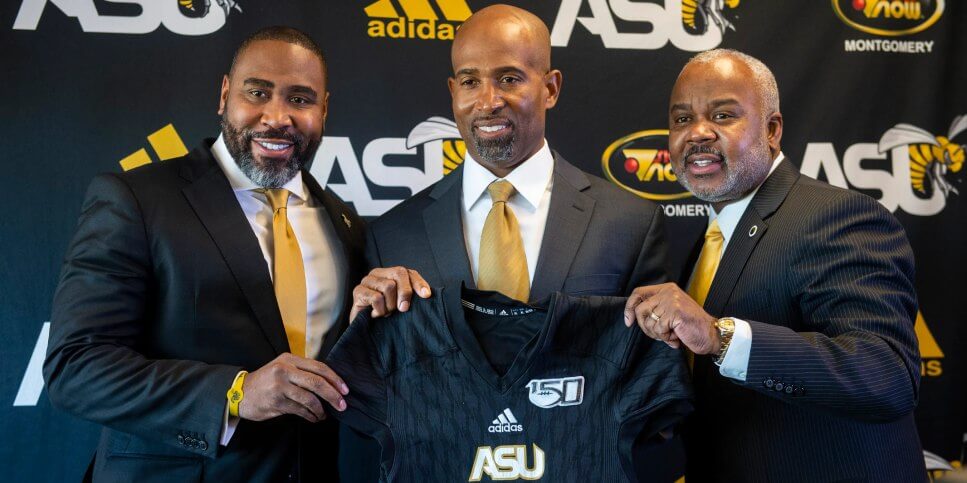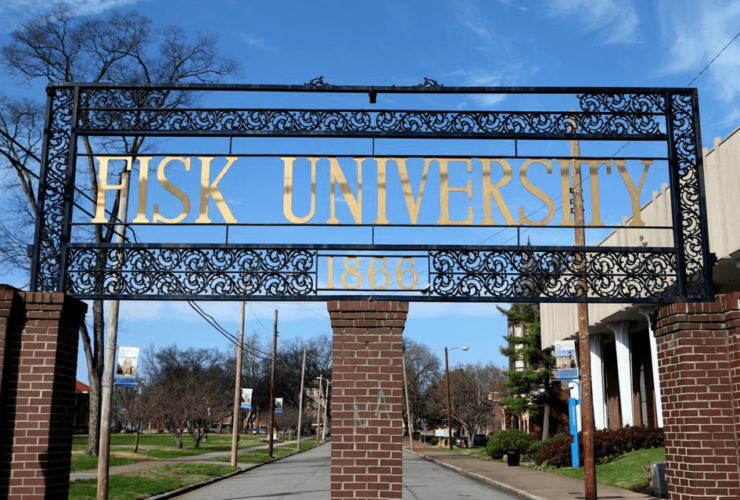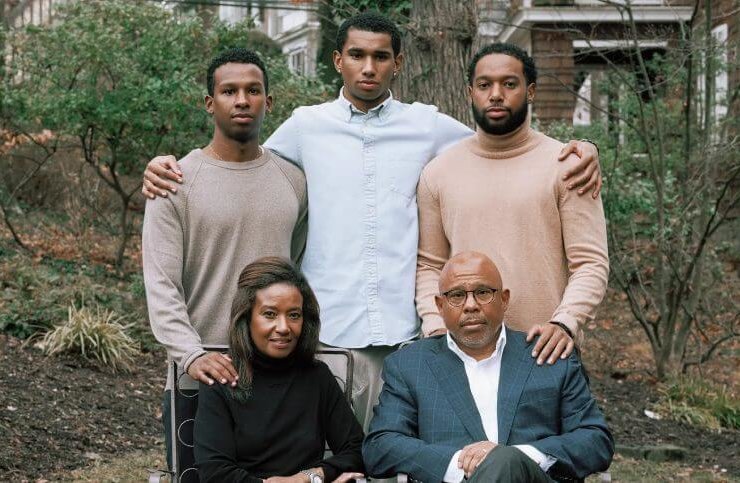Alabama State introduces Eddie Robinson as new football coach
Alabama State University (ASU), located in Montgomery, Alabama the state capitol, is the third Historically Black Colleges and Universities (HBCUs) to select a high-profile veteran NFL player with no coaching experience for the position of the head football coach for the upcoming 2022 football season. This same strategy was used by two other HBCUs in replacing the head football coach position at Jackson State University (JSU), located in Jackson, Mississippi the state capitol, and Tennessee State University (TSU), located in Nashville, Tennessee the state capitol.
The first two head coach selections for JSU (Deion Sanders) and TSU (Eddie George) attend non-HBCUs, Florida State University, and Ohio State University, respectively. In the case of ASU, the selection is an alum, former Southwest Athletic Conference (SWAC) Defensive Player of the Year and during his time at Alabama State, Eddie Robinson Jr. had a 3.58 GPA while studying chemistry and was named to the Academic All-SWAC twice.
Any differences in the selection strategies used by the administrative leadership of these HBCUs in making these head football coach appointments are of little importance. The importance of these appointments is in the similarity of the immediate positive news media coverage these institutions and all HBCUs received following the appointments.
Winning a college football championship at any level may or may not be the outcome of these appointments. But a victory was achieved by the administrative leadership of these HBCUs for showing the willingness to make the necessary changes needed to compete at a higher level based on the positive response from the news media.
If the impact of these high-profile football coach appointments leads to more football game victories for these HBCU football programs is of little consequence, in the overall arena of college football. However, if the impact of these appointments enhances the survival of these HBCUs and the quality of their students experience while on campus and in these HBCU communities, the impact is of enormous consequence.
HBCUs and their surrounding communities are the places where the black communities were able to develop the culture and strength required to begin the struggle against those oppressive systems that deny freedom to black people. And these same HBCUs are the best places in America for updating the old and developing new strategies needed to continue the struggle against any systemic oppression that exists today.
The students attending ASU, JSU, and TSU received the nurturing and preparation required to occupy the frontline in the struggle against the systemic oppression of black people implemented by the three state capitols in which these HBCUs were located. The role these HBCUs students played in changing the segregationist social policies that dominated these states were indeed of enormous consequence.
HBCU students at Alabama State were the foot soldiers for the Montgomery Bus Boycotts that started the modern civil rights movement. The movement that led our nation toward a truer meaning of democracy. So, if improving the quality of HBCU football leads to restoring the role these institutions perform in our nation’s democratic development, it is a start in the right direction.
However, a more lasting improvement would be restoring the HBCUs community infrastructure for the football players, the rest of the student body, the faculty, the staff, and the community. Restoring these institutions is as essential to forming a more perfect union today as it was when they were founded.
If your HBCU needs assistance getting started contact us at www.hbcucdc.com.



